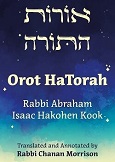
Having survived the trickery of uncle Laban and the enmity of his brother Esau, Jacob finally returned to his homeland.
“Jacob arrived whole (shalem) to the city of Shechem in the land of Canaan” (Gen. 33:18).
In what way was Jacob shalem? The Talmud explains that he was “whole in body, whole in money, whole in his Torah knowledge” (Shabbat 33b).
According to the medieval commentator Rashi, these three areas are directly related to Jacob’s previous ordeals. Physically — Jacob healed from the lameness the stranger had afflicted upon him in their mysterious struggle at Peniel. Financially — he did not lack money, despite the expensive gifts he had offered his brother Esau. And spiritually — he had not forgotten his Torah learning, despite the long years of intensive labor at Laban’s house.
Jacob’s Holistic Perspective
In truth, Jacob’s wholeness was not to be found in any quantitative accomplishments. It could not be measured by how fast he could run, by the number of sheep he owned, or by the number of scholarly discussions he had memorized. Rather, Jacob’s wholeness was in his holistic approach toward these diverse spheres.
People think that the pursuit of excellence in one field entails neglecting other areas. A person who seeks perfect health and physical strength will come to the realization that one needs money to attain this goal. But the pursuit of wealth can become such an all-absorbing goal that it may come at the expense of one’s original objective – good health. Ironically, the anxiety to acquire wealth can end up ruining one’s health.
It is clear that both good health and financial security help provide the quietude needed to refine character traits and attain intellectual accomplishments. However, these different areas, instead of complementing one another, often compete with each other. We suffer spiritually when our desire to strengthen the body and cultivate social living (which requires certain financial means) are not understood in their overall context.
The perfection of Jacob — the ish tam, “the complete man” (Gen. 25:27) — was in his ability to live in a way that no single pursuit of excellence, whether spiritual or material, needed to contradict or detract from other personal goals. On the contrary, when they are understood properly, each aim complements and strengthens the others.
This is the profound message of the Talmudic statement. Jacob was whole in body and wealth, and from both of these together, he found the inner resources to be whole in Torah. Jacob exemplified the trait of emet, truth — “Give truth to Jacob” (Micah 7:20). He demonstrated how, in their inner depths, all accomplishments are united together; all reflect different facets of the same inner truth.
(Gold from the Land of Israel, pp. 73-74. Adapted from Ein Eyah vol. III, p. 209)
Illustration image: ‘Jacob Wrestling with the Angel’ by Rembrandt (1659)





